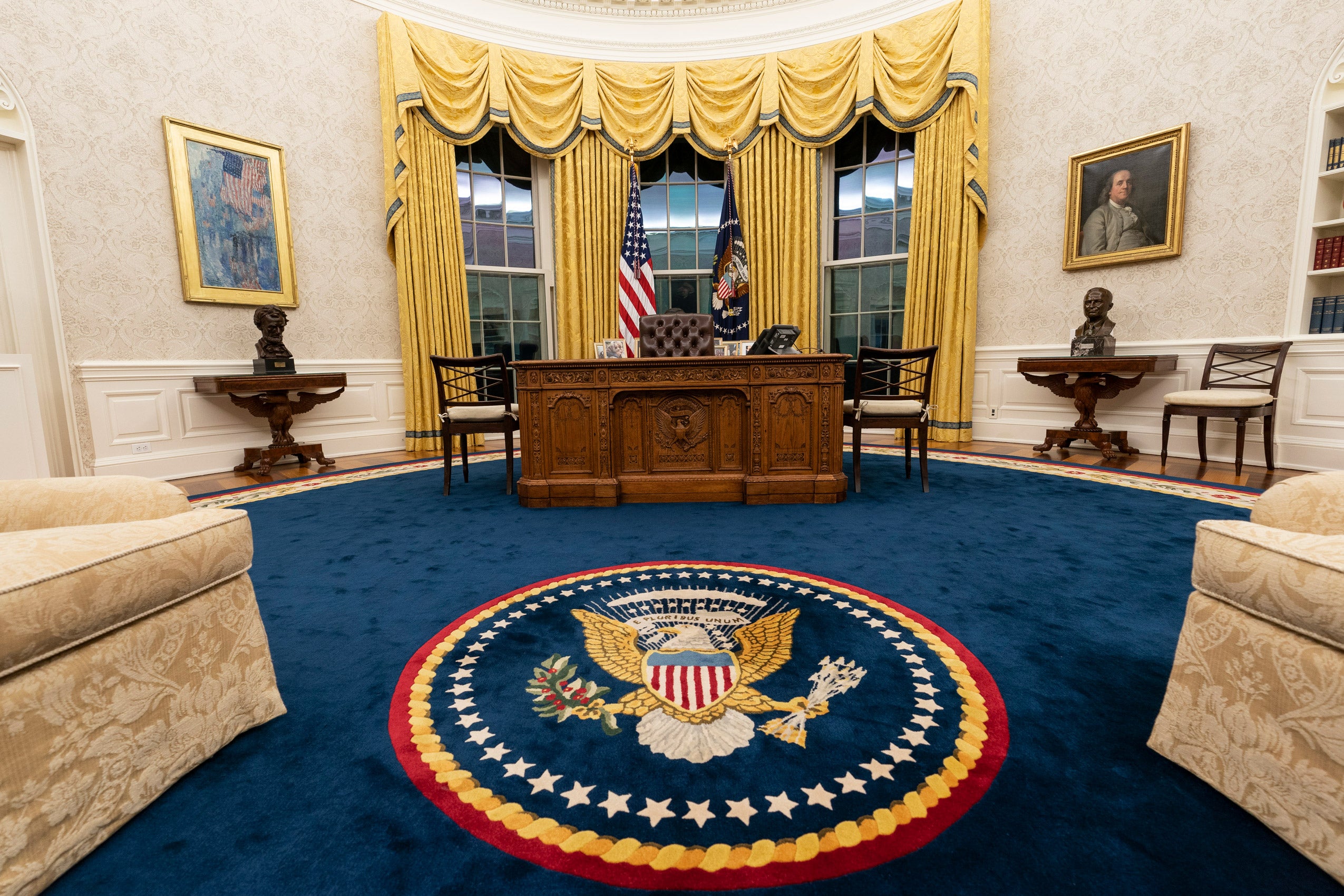As part of a series examining the first year of the Biden administration, Harvard Law Today asked Neil Eggleston, who served as White House counsel under President Obama and is currently a lecturer on law at Harvard, to share his thoughts on how Joe Biden has used — and how he should use — the power of the presidency.
Harvard Law Today: What has the administration done right so far?
First and most importantly, President Biden has restored dignity and public purpose to the White House. Debates over the wisdom of his policies will continue, and are inevitable in any administration. Debate and disagreement over substance is what democracy should want to have. Yet under President Biden, we are no longer questioning whether the president is running the White House for his own personal and financial benefit, which was a hallmark of the prior administration.
The restoration of integrity and impartiality at the Department of Justice is another significant achievement. Many disagree strongly with some of the decisions the department has made, most specifically regarding matters touching on former President Trump. Despite that disagreement, it seems clear that the department no longer sees itself as part of a president’s personal legal team. The restoration of the separation between the White House and the department is critical to the proper functioning of our system of justice.

The White House focus on the nomination and confirmation of judges has been highly commendable. President Biden’s record — and continuing efforts — on judges is critical to the need to restore balance to the judiciary. Moreover, for really the first time, the president has nominated judges that reflect America. Women, people of color, LGBTQ individuals, and people with a wide variety of professional backgrounds are among those who have been nominated at rates never before seen in this country.
Finally, the White House focus on the COVID pandemic has been impressive. The rapidity of mutations has meant that strategies that have worked for one variant are maybe less likely to be effective for another. The White House has addressed each one quickly and has acted aggressively to make maximum use of the tools of the presidency. The Biden White House has been guided by science. Science is sometimes messy, can be uncertain, and does not always lead to clear results, but science is the only yardstick that policy makers should be using.
HLT: What has it gotten wrong?
The administration has gotten very little wrong in its use of executive authority.
One intractable problem has always been immigration. The Trump administration tried to curtail all immigration, legal and illegal, as much as possible. That draconian policy resulted in the intentional separation of children from their parents and other unconscionable conduct. As President Obama used to say, we are not a country of open borders, as much as the immigration interest groups wanted to drive him that direction.
Under President Biden, we are no longer questioning whether the president is running the White House for his own personal and financial benefit.
On the other hand, immigration has been a part of our values and has been critical to the growth and success of our country. Many are concerned that the administration policy seems once again to be driven by a need to respond to a series of crises instead an overall approach to the multiple immigration-related issues.
This is particularly an area where acting by executive orders and directives is the only available path to the president. Comprehensive immigration reform from Congress is needed, has generally had bipartisan support, and seems quite unlikely to happen. As has already occurred — and as we can anticipate will continue to occur — any time President Biden exercises executive actions in the immigration space, Republican attorneys general will sue in favored jurisdictions and obtain injunctions against those polices. The administration must aggressively litigate those actions. If the administration loses in court, it must immediately determine whether less comprehensive — albeit probably less effective — policies can prevail. Nationwide injunctions that were so condemned by Republicans during the Trump administration are now widely embraced.
HLT: What has the administration not addressed yet that it should?
The administration should be moving more quickly on executive action on climate change. The administration certainly agrees that climate change is one of the central issues of our time. Any executive action that the administration takes will be immediately subject to challenge in court. The inevitability of challenge means that the EPA, OMB [White House Office of Management and Budget] and other agencies need to ensure that they have created a solid record in support of their actions. That takes time. On the other hand, the litigation will also take time, and the strategy of running out the clock through litigation has become a favorite tactic of the opponents of the administration. The administration needs to assume that a Democrat will not be elected in 2024 and act accordingly. Time is not on their side.
The administration should be moving more quickly on executive action on climate change. … Time is not on their side.
HLT: What are the biggest challenges the administration faces to its agenda going forward?
The biggest challenge to the administration’s agenda in executive actions going forward will unquestionably be litigation, largely by Republican attorneys general and Republican-leaning business groups. Every significant administration action will be challenged in court. One of the strategies of the Republican groups will be to stretch out the litigation as long as possible in the hopes that Republicans will win the White House in 2024, at which time it will kill these initiatives before they become final. As the Trump administration learned at the beginning of its term, reversing regulations that have become final is difficult, time consuming, and requires the same type of administrative record that gave rise to the original regulation. The Trump administration lost case after case early in its term when it tried to alter effective dates or otherwise negate regulations that were in effect. Resolving the litigation and getting the regulations final is critical.
The Supreme Court was highly deferential to the Trump administration and largely permitted highly controversial policies to remain in place while the litigation continued in the lower courts. The Biden administration needs to assume that the same deference will not apply when the Supreme Court considers whether to permit its polices to remain during the pendency of the litigation. The Biden administration needs to make clear to the courts that delay can be a functional ruling against the administration policy.
Read the series Weighing President Biden’s first year
